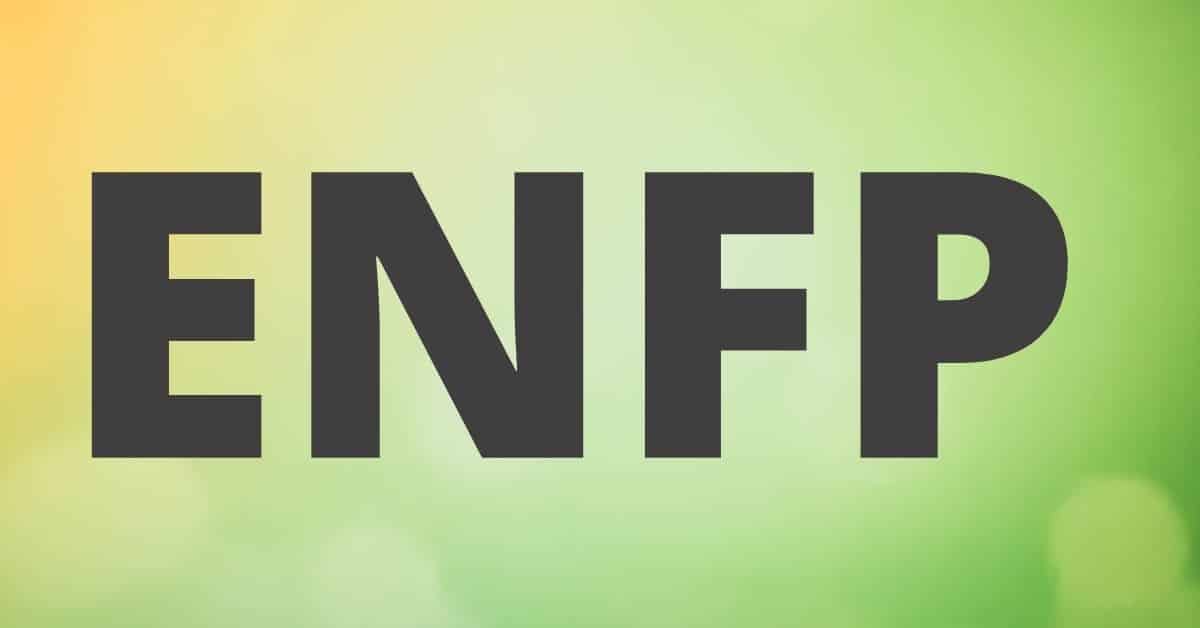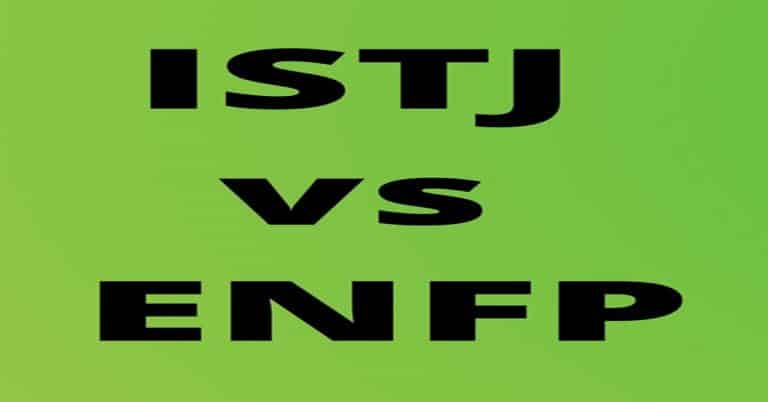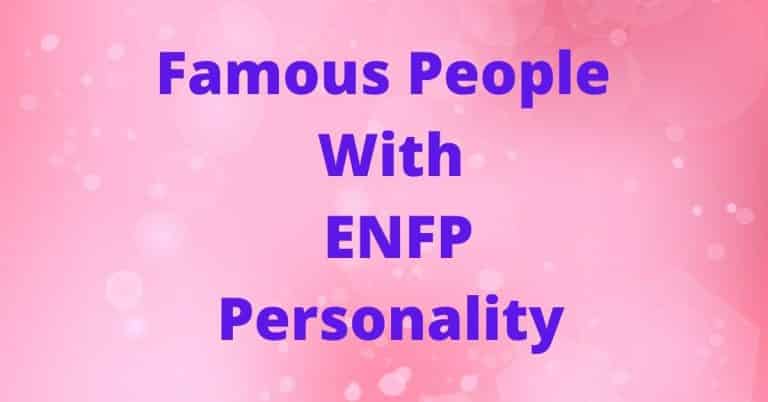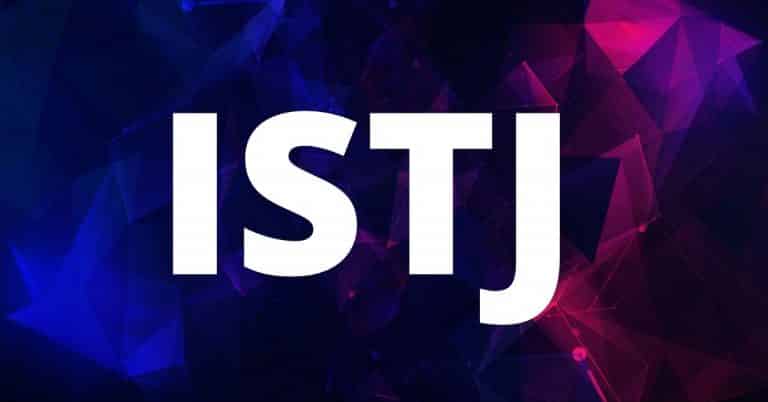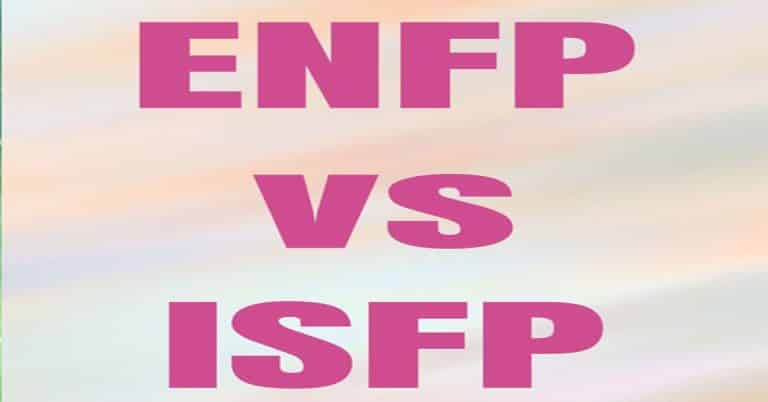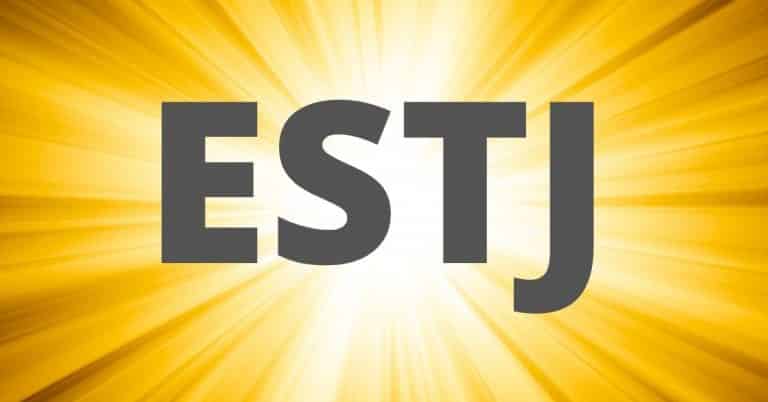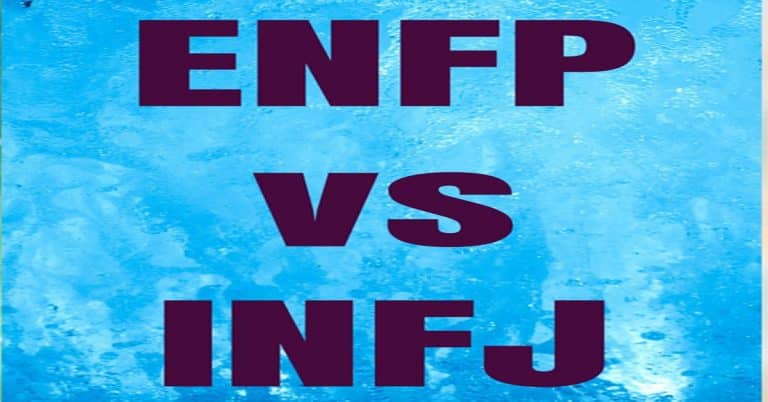ENFP – The Campaigner
Contents
ENFP Meaning:
The ENFP personality type consists of Extraversion, which means that they derive their energy and feed off interacting with others and the outside world, Intuition, in that they tend to think in terms of possibilities and concepts, Feeling, in that they make their decisions based primarily out of feeling as opposed to exclusively based on facts and rules, as well as Perceiving, in that they are not rigid or necessarily organized in any given approach, and prefer to work with new information as it presents itself. Other names for the ENFP include The Campaigner, The Creative Idealist, the Advocate, the Inspirer, and the Hero.
ENFPs are one of the more common Myers-Brigg personality types, roughly consisting of about 8 percent of the population. Women are more prone to report as an ENFP at 10 percent, with men slightly lower at 6 percent. Given their Extraverted and Intuition traits, the ENFP constantly thinks and produces new ideas and possibilities. They are omnidirectional in that they are never committed to one single path but enjoy and take pride in their ability to adapt and change direction on a whim.
ENFPs enjoy stimulation in all areas of their lives and prefer a dynamic, almost chaotic lifestyle instead of a routine and orderly one. This tendency more often than not leads to the ENFP becoming easily bored and constantly on the lookout for the next new and exciting thing or opportunity.
ENFPs enjoy their interactions with others, and learning about their thoughts and feelings; however, this is only in so far as it does not impose a detriment to their own perspective and self-expression.
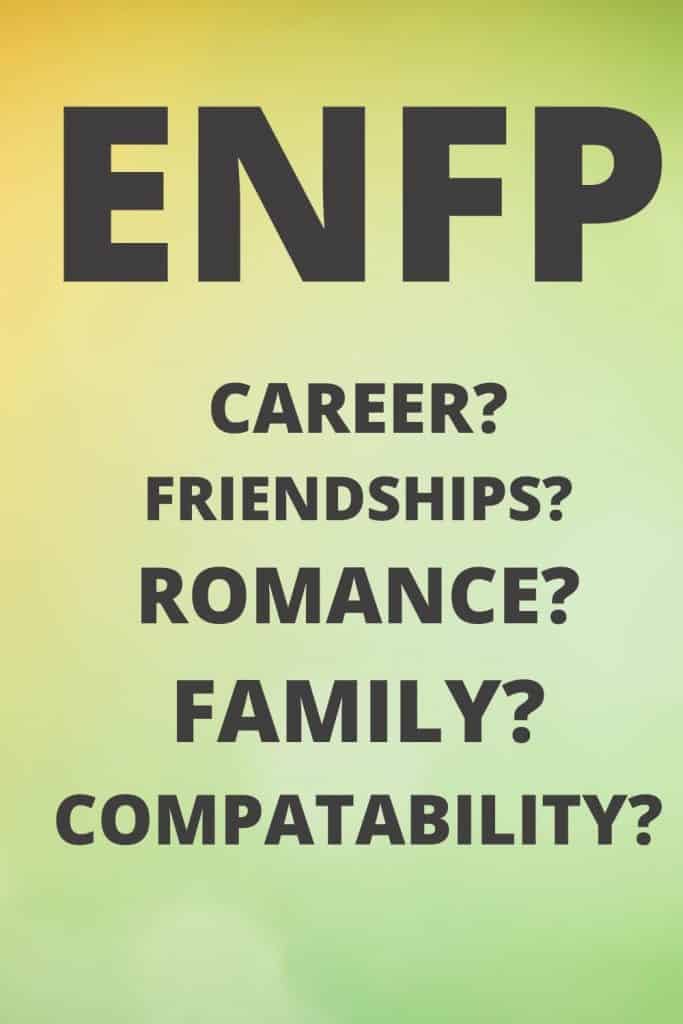
ENFP’s and Career:
Given their tendency for fast-paced and spontaneous environments, it is no surprise that the ENFP is more attracted to industries that are less rigid and shy away from those that they would consider being creatively stifling, such as most forms of office work or administration. ENFPs are wildly individualistic and are often regarded as impulsive in their method. ENFP’s will approach most things with an invigorated and enthusiastic energy that can also make for great inspiration and motivation for others within a team setting. The ENFP is most inspired when they can improvise and find their own creative way or solution to approach any given problem or task in the workplace.
ENFPs will also strongly prefer to understand the how & why of tasks, goals, and rules so that they can better understand and determine how they can and will work within that framework. ENFPs are highly imaginative and creative, and, if given the opportunity and a conducive environment, they can be invaluable innovators, either within a team, or leading one. Given their inspired contributions, they are often considered planners of change and can be instrumental in brainstorming and looking at new directions.
This propensity works remarkably well, as ENFPs tend to involve and collaborate with others, often encouraging others’ input and participation as much as possible, given their Extraversion tendency.
ENFP’s as Direct Reports:
As direct reports, ENFPs bring emphatic enthusiasm to the team and look to challenge and promote the team to think outside of the box and themselves. ENFPs enjoy interacting with others and hearing their thoughts, and ideas. They particularly love to explore the nature of their concerns, feedback, and why they think that an idea or approach WILL NOT work. The ENFP will process this information, synthesize it, and then use it to inform their subsequent creative pursuit or response.
However, this application must first be cross-referenced and applied to their own core and fundamental beliefs and thoughts. Any deviation from this may result in resistance or discouragement on the part of the ENFP.
ENFPs are energetic and motivated in the context of a thinktank or a brainstorming environment. However, they would generally prefer not to be involved in the actual execution of any given idea. Instead, they prefer to delegate or leave the actual realization of any given idea to others and will instead look forward to their next riddle or problem to solve.
Leaders of ENFPs may be challenged to keep them engaged, especially when the work is ostensibly repetitive, routine, or uninspired by nature. It is sometimes difficult for the ENFP to find value, inspiration, and motivation if they do not agree with it or if they consider it creatively lacking. Although the ENFP will still often attempt to apply a novel method or approach of doing things, it quickly wanes and takes its toll on the morale and the productivity of the ENFP.
ENFP’s also tend to avoid conflict as much as possible and will go out of their way to remove themselves from potentially emotionally charged environments or workplaces. It is also unsurprising that the ENFP will prefer not to be bogged down by deadlines or milestones for their work. They work primarily on inspiration and would instead not set a timer or deadline on something so subjective. However, if not reigned in and compromised upon, an ENFP may risk constant procrastination or starting tasks or projects but not completing them once the novelty has been lost.
ENFP as Leaders of Others:
The ENFP has the common traits to be an extremely effective leader, especially in the right environment and circumstances. ENFPs that are the leaders of innovative & cutting-edge projects tend to thrive the most and are most often able to work with any combination of personalities on a team to produce a beneficial and innovative solution or direction to take the team and the company. However, as ENFPs tend to avoid conflict, this can also be an area for concern and opportunity when the ENFP is leading a team. If not kept in check, the ENFP will tend to avoid, resulting in a fundamentally lopsided and misrepresented group. Instead, ENFP leaders should make an active and conscious effort to engage in creative and constructive conflict, which, if done correctly, can lead the team to an even more elevated and inspired thought or idea. This, however, does take a constant check and cognizance, and an ENFP may get used to, but never truly comfortable, in approaching conflict in this way.
Also, ENFPs leading a team will tend to approach their leadership style with the same approach that they would appreciate as a member of the team. That is, their preference is not towards rules, regulations, and policies. It can be potentially problematic for the ENFP to approach and especially enforce specific standards if the ENFP themselves do not necessarily agree or have a particular interest in it.
ENFPs also do not particularly enjoy formal meetings, especially when scheduled on a defined basis. They would much rather have meetings when absolutely necessary and would prefer them to be to the point and as action oriented as possible. This can cause disorganization and misalignment within the team if the ENFP is not being careful to ensure these formalities are not neglected in being communicated and followed.
ENFP Professions:
ENFPs are a force to be reckoned with when in the proper context and workplace. ENFPs tend to thrive in the Entertainment sector, and have the potential for successful careers in acting, directing, and producing.
As ENFPs are constantly pushing and challenging common thought and status quo (not in an aggressive way, but in an inquisitive one, they also tend to make for excellent artists, including graphic designers, fashion designers, art designers, photographers, writers and architecture – any field that provides them the means to challenge the norm to produce a new, novel, and inspired work or perspective.
Also, given the ENFPs affinity for learning and helping others, they also tend to be successful in Educational and Faciliatory occupations, including Elementary, Junior High, or High School teachers, College and University professors, and Special education teachers.
And, while any personality type can be successful and thrive at any occupation or field, there are some that the ENFP may find challenging given their natural tendencies. Notably, any area with rigid, structured schedules and workplaces is not appealing to the ENFP and can include Farmer, Law Enforcement, Banker, Dentist, and any form of Administration or Administrative Assistant.
ENFP and Interpersonal Relationships:
Given the ENFP’s affinity and appreciation of the inner workings of others, they make for engaging and exciting friends and lovers. When engaged in relationships with those others that share their lust for life, they can be adventurous, nurturing, and welcome motivators and agents of change for others. However, if in a relationship with those that do not appreciate the ENFP’s spontaneous and vivacious approach to life, it can be the cause for friction and frustration for both parties.
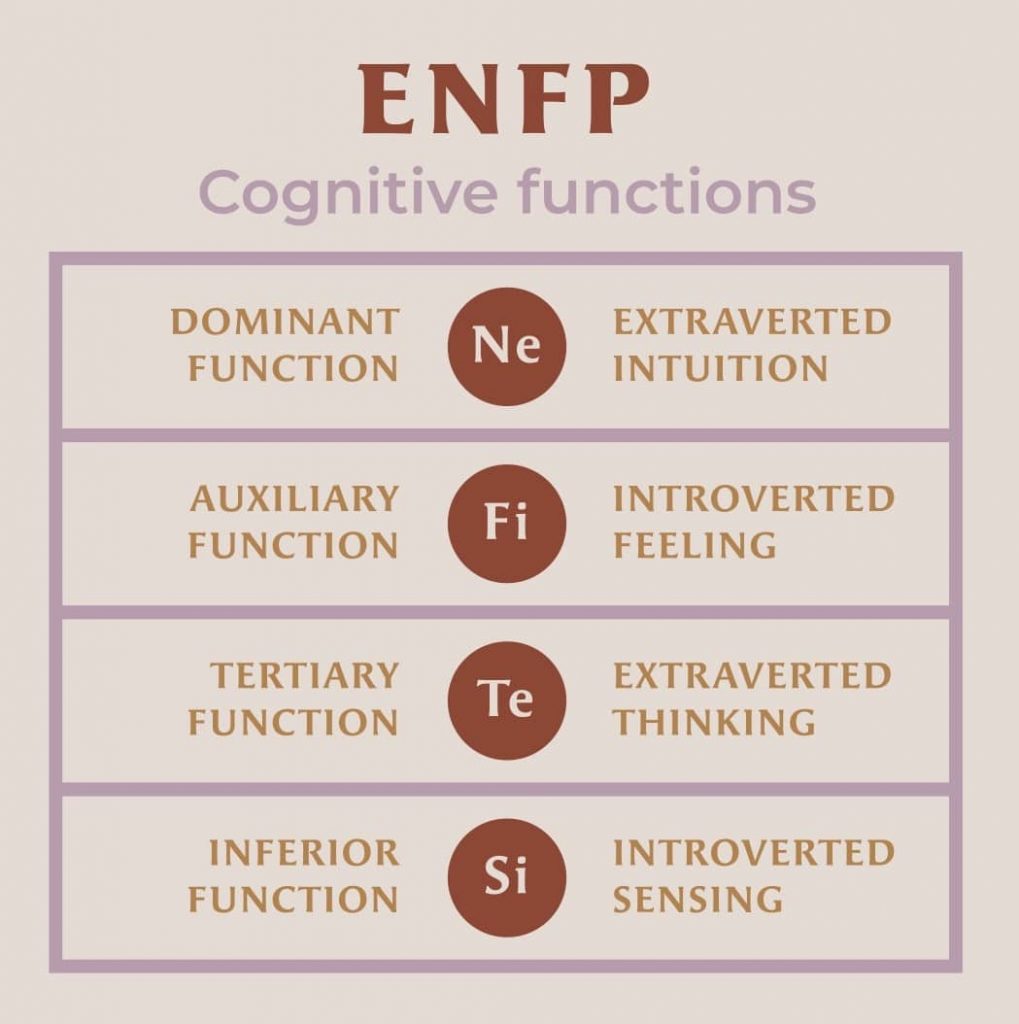
ENFP in Friendships:
ENFPs are in constant pursuit of new and exciting ideas. They therefore appreciate and make fast friends with those who have a similar approach to life or those who want to support and nurture their growth and development. These are most likely to include the following personality types, the INFP (Introverted, Intuitive, Feeling and Perceiving), the ENTP (Extraverted, Intuitive, Thinking and Perceiving), the ENFJ (Extraverted, Intuitive, Feeling and Judging), as well as, of course, other ENFPs.
There are also potential incompatibilities for the ENFP as well, and THEY tend to include those personality types that prefer a more organized, planned, and structured lifestyle. These include the ISTP (Introvert, Sensing, Thinking, Perceiving), the ISTJ (Introvert, Sensing, Thinking and Judging), the ISFJ (Introvert, Sensing, Feeling and Judging), as well as the ESTJ (Extravert, Sensing, Thinking and Judging). This is not to say that these personality types cannot get along or have meaningful and successful relationships; however, given each personality type’s natural preferences and tendencies, it may be more challenging than with others.
ENFP in Romantic Relationships:
ENFPs strive to bring their enthusiasm and excitement about the possibilities of the world around them to their romantic relationships as well. As ENFP’s act on Intuition and inspiration, they can make for particularly engaging and thoughtful partners, full of surprises and energy. ENFPs love to explore new possibilities and directions and enjoy and prefer a partner that can keep up with them.
However, given their aversion to conflict, ENFPs can run the risk of not communicating their true thoughts and feelings, especially when they may lead to a disagreement or argument. This avoidance mutes and censors the ENFP and, can build up to an irreversible and irrevocable point if left unchecked for long periods of time. This is especially true for ENFPs who are in relationships with other personality types that may choose to avoid conflict, such as other ENTPs.
However, when in a relationship that recognizes the potential for avoidance, ENFPs make for passionate, inspired, and loyal partners.
Conclusion:
As such, ENFPs have an enigmatic mind that is constantly at work thinking about both what is and what could be. When this mode and way of thinking is given proper value, appreciation, and the right environment, the innovation that can come to fruition can be nothing short of awe-inspiring.
ENFPs also make for influential and instrumental professionals, whether it be on a team or leading one. Their expansive way of thinking and creative approach is conducive to original and inspired solutions.
They are constantly riding the wave of change and novelty in relationships and lifestyle. They take pride in their adaptability and ability to forge new ground and change direction. When in a relationship with like-minded personalities, they have the potential to grow together, often at an explosive and rapid pace.
You can find information on famous people with ENFP personality types such as celebrity actors, sportsmen, characters and other historical characters with this personality type.

